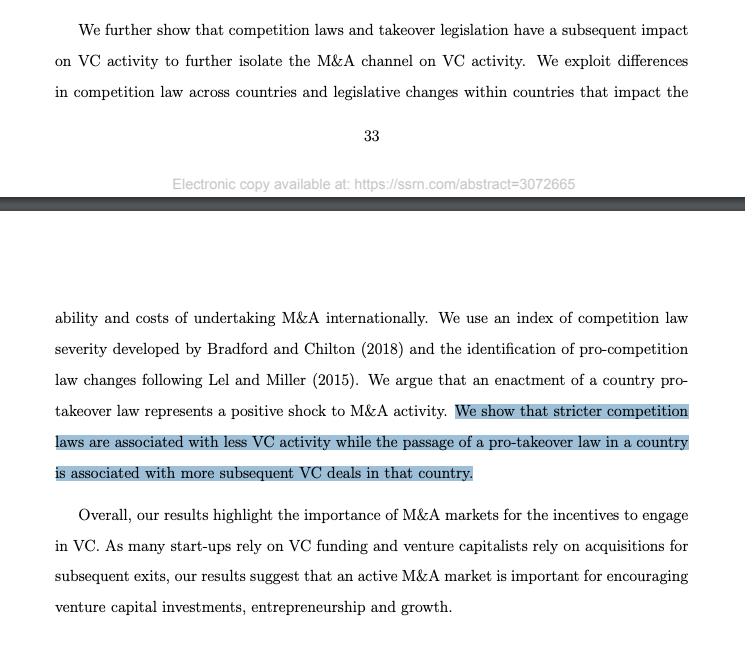Thoughts on the Klobuchar antitrust bill.
1. Q: Is competition falling in the US economy, and market power rising?
A: Probably not – see this thread. Profits seem to be going to more productive firms that are driving down prices (like Amazon). https://twitter.com/s8mb/status/1311727919459454977
1. Q: Is competition falling in the US economy, and market power rising?
A: Probably not – see this thread. Profits seem to be going to more productive firms that are driving down prices (like Amazon). https://twitter.com/s8mb/status/1311727919459454977
2. Q: Is "conduct that materially disadvantages competitors" anticompetitive?
A: No, competition means disadvantaging competitors – by cutting prices, improving products, "stealing" customers, etc.
You can prioritise competition or business welfare. This bill does the latter.
A: No, competition means disadvantaging competitors – by cutting prices, improving products, "stealing" customers, etc.
You can prioritise competition or business welfare. This bill does the latter.
3. Q: How will this bill affect Big Tech?
A: By making it *harder* for them to change their products and adapt to consumer demand and market conditions – exactly the sort of behaviour that we *want* and think competition will give.
A: By making it *harder* for them to change their products and adapt to consumer demand and market conditions – exactly the sort of behaviour that we *want* and think competition will give.
4. Q: What are the costs of moving to a "guilty until proven innocent" standard in mergers?
A: Antitrust agencies become able to block many mergers for any reason, because proving benefits can be impossible even when they are present. See this thread. https://twitter.com/ProfWrightGMU/status/1313527862130085889
A: Antitrust agencies become able to block many mergers for any reason, because proving benefits can be impossible even when they are present. See this thread. https://twitter.com/ProfWrightGMU/status/1313527862130085889
5. Q: What happens when you make acquisitions harder?
A: Investment in startups falls, because it's harder for investors to exit profitably. Study looking at evidence from 48 countries:
https://papers.ssrn.com/sol3/papers.cfm?abstract_id=3072665
A: Investment in startups falls, because it's harder for investors to exit profitably. Study looking at evidence from 48 countries:
https://papers.ssrn.com/sol3/papers.cfm?abstract_id=3072665
6. Q: Are "killer acquisitions" hurting innovation in tech?
A: No, the evidence for "killers" is from pharma, not tech. And "killer acquisitions" may incentivise *more* innovation precisely because firms *want* to be be "killed" by being acquired.
https://laweconcenter.org/wp-content/uploads/2021/02/International-Center-for-Law-Economics-HSR-Comments-Final.pdf
A: No, the evidence for "killers" is from pharma, not tech. And "killer acquisitions" may incentivise *more* innovation precisely because firms *want* to be be "killed" by being acquired.
https://laweconcenter.org/wp-content/uploads/2021/02/International-Center-for-Law-Economics-HSR-Comments-Final.pdf

 Read on Twitter
Read on Twitter





